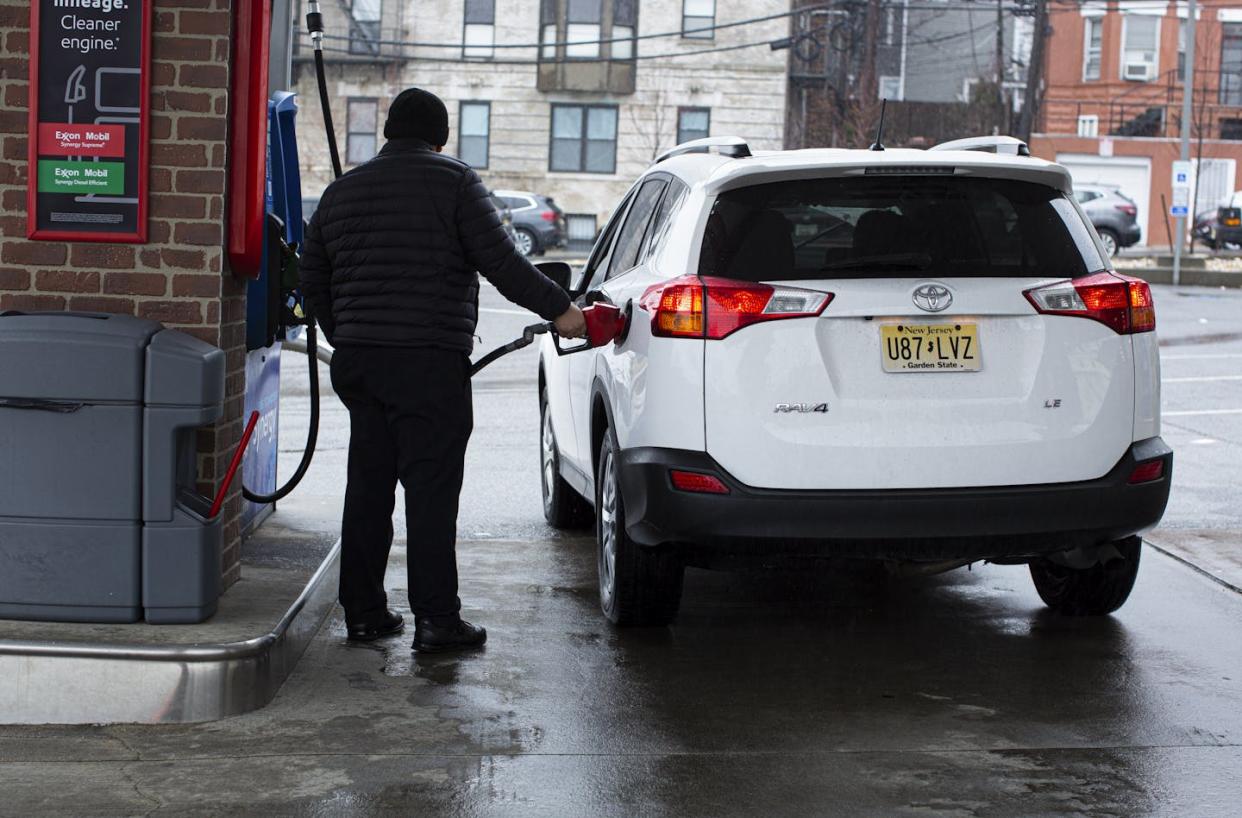Why Jersey girls − and guys − still don’t pump their own gas

New Jersey’s quirky reputation is hard earned, but one peculiarity stands out: It’s the only place in America where you can’t pump your own gas.
Laws against self-service gasoline used to be common: In the late 1960s, nearly half the states in the U.S. had one. But as fuel dispensers became safer and credit cards made paying at pumps possible, those states began to reconsider. By the early 1990s, nearly four out of five gas stations nationwide were self-serve.
For decades, Oregon and New Jersey were the last two holdouts. But Oregon loosened its restrictions against gas station self-service in 2018 and ultimately reversed its ban in 2023.
That leaves the Garden State. Its self-service ban, which went into effect in 1949, has a colorful history: It was born of a thuggish, Sopranosesque effort to thwart competition. In the late 1940s, a man named Irving Reingold opened a self-service station in Hackensack, offering gasoline at a lower price than his competitors. Those competitors tried to intimidate Reingold – complete with a drive-by gas-station shooting. When that didn’t work, they formed an alliance and proposed the self-service ban.
As an economics professor based in New Jersey (but from the Midwest), I’ve taken a keen interest in this rule. And I don’t think it’s going anywhere – for now, at least.
Why New Jersey’s ban is here to stay
Despite the ban’s unsavory origins, New Jersey residents seem to like it. Nearly three out of four New Jerseyans oppose lifting the ban, a 2022 Rutgers poll found. That same year, a Monmouth University poll found that a slight majority would support allowing self-service gasoline, but only if the state required all gas stations to offer full service as an alternative. If the state didn’t do that, then 60% said they’d support maintaining the current ban.
State politicians are clearly paying attention. When asked about the self-service ban in 2019, Gov. Phil Murphy said that trying to reverse it would be “political suicide.” Former New Jersey Govs. Chris Christie, a Republican, and Jon Corzine, a Democrat, met the same resistance and also never pushed the issue. Self-service gas stations may be the most bipartisan public policy issue in New Jersey.
Do drivers benefit from the ban?
There are reasonable arguments for and against the self-service ban.
One is that banning self-service leads to higher prices at the pump because it boosts labor costs. There’s evidence supporting this claim. A recent study found that gasoline prices fell 4.4 cents per gallon after Oregon partially removed its ban in 2018. Interestingly, this estimate is in line with an earlier study that found self-service bans increase gas prices from 3 to 5 cents per gallon.
However, gasoline prices likely won’t fall more than a few cents per gallon if the ban is repealed. That’s because having full-time gasoline pumpers lowers stations’ insurance costs because of fewer accidents and less risk. Clearly, the risk is significant, or you wouldn’t see lawyers advertising based on the issue.
For people who want to pump their own gasoline, a ban on self-service may feel oppressive, but they might be disappointed by the alternative. That’s because research shows full service doesn’t take longer than self-service, even though people expect it will.
People think full service takes longer because temporal relevance distorts their perception of time. Temporal relevance is why waiting in line when you’re in a hurry feels like an eternity but time flies when you’re having fun. In much the same way, time seems to move more quickly when you’re pumping your own gas.
What about the workers?
People also support the self-service ban for a practical reason: It creates jobs.
There are 3,205 gasoline service stations in New Jersey. If each station employs two attendants, that would add up to 7,410 employees across the state. These are jobs that are open to people with limited education,which is a big deal at a time when blue-collar service jobs are being replaced by automation.
But the labor issue is complex. During the pandemic there were legitimate concerns about finding enough employees to work these jobs. These labor constraints led the New Jersey Gasoline, Convenience Store, Automotive Association to reverse its long-standing support of the ban.
The net economic effects from lifting the ban remain unclear. Researchers will have a better sense of it from watching what happens in Oregon, although there’s a movement to put the issue on the ballot in November 2024 and let Oregon voters decide whether to reinstate the ban. If successful, this will be an election that New Jersey politicians – and self-service gurus – will watch closely.
In the meantime, if you want to pump your own gasoline in the Garden State, fuhgeddaboudit.
This article is republished from The Conversation, a nonprofit, independent news organization bringing you facts and trustworthy analysis to help you make sense of our complex world. It was written by: Robert H. Scott III, Monmouth University
Read more:
Electric vehicles are suddenly hot − but the industry has traveled a long road to relevance
New Jersey’s small, networked dairy farms are a model for a more resilient food system
Robert H. Scott III does not work for, consult, own shares in or receive funding from any company or organization that would benefit from this article, and has disclosed no relevant affiliations beyond their academic appointment.

